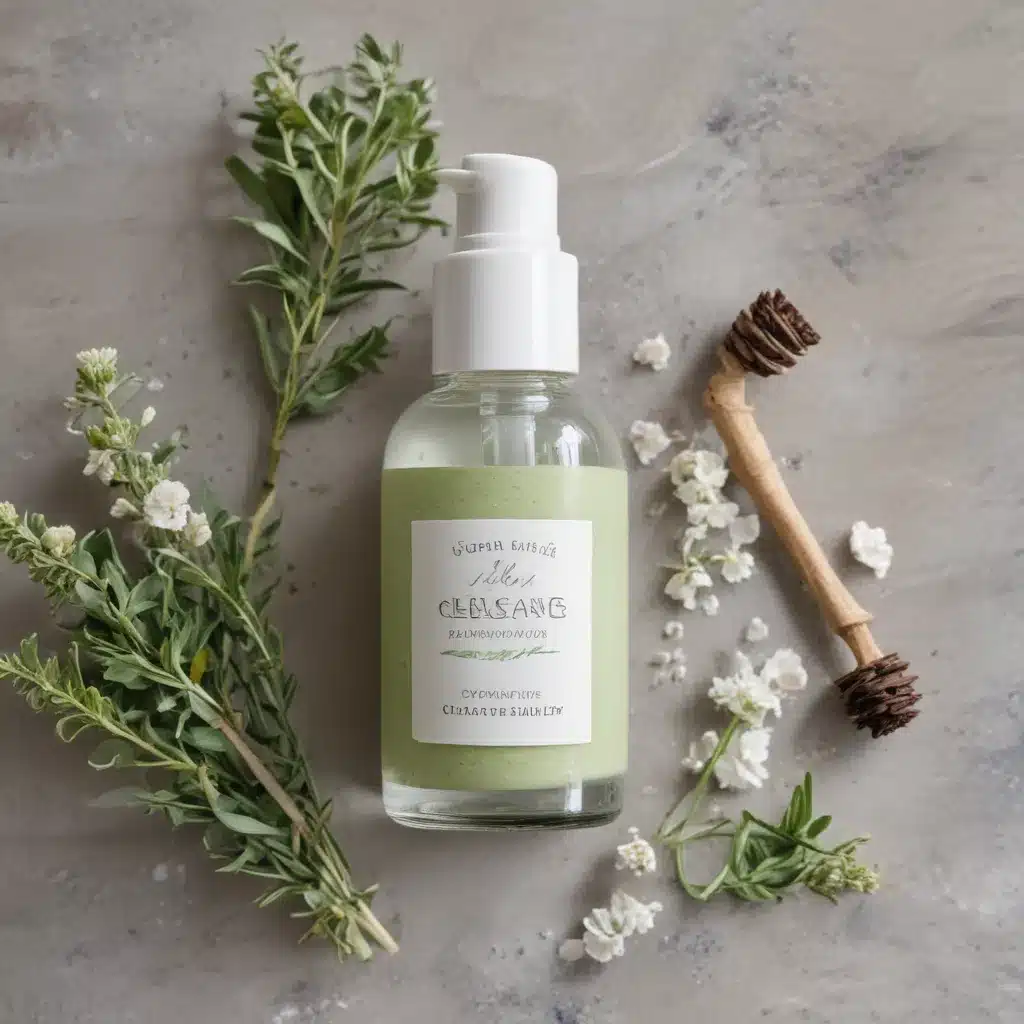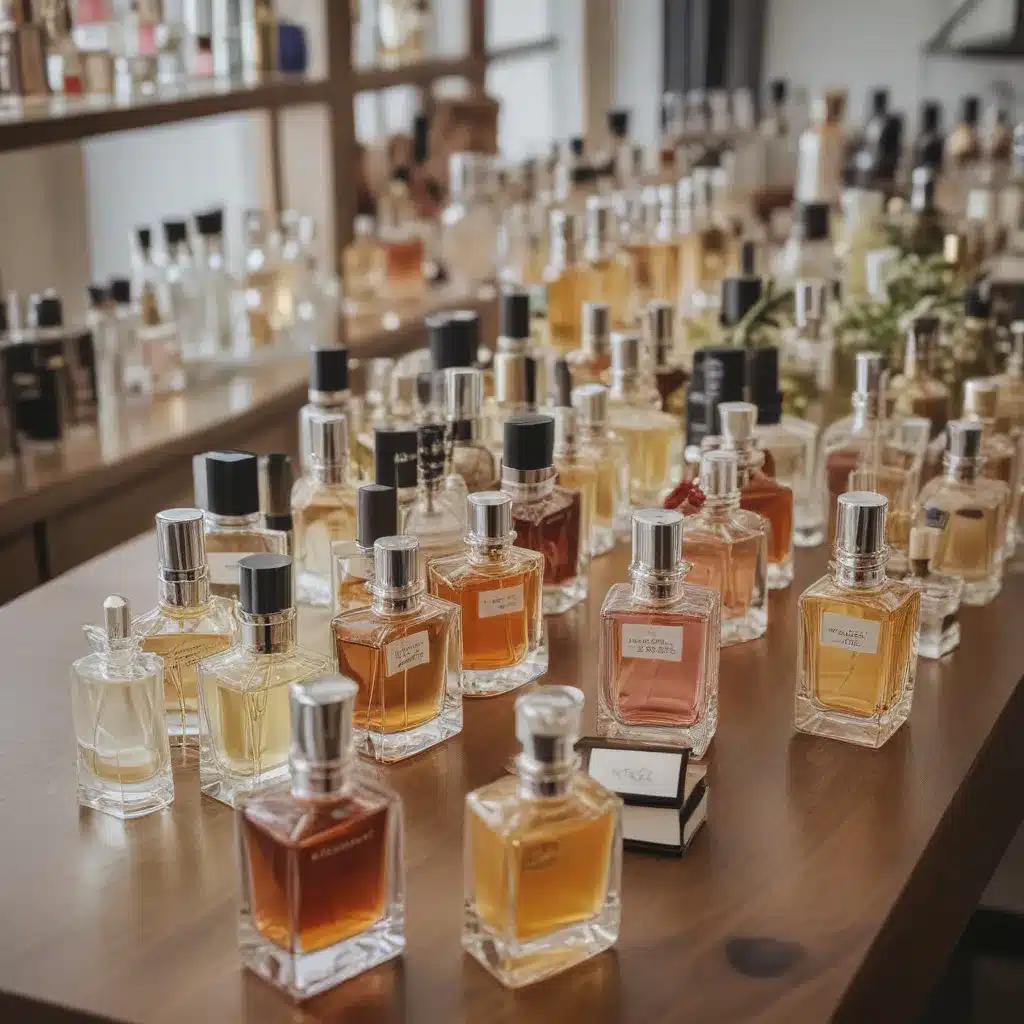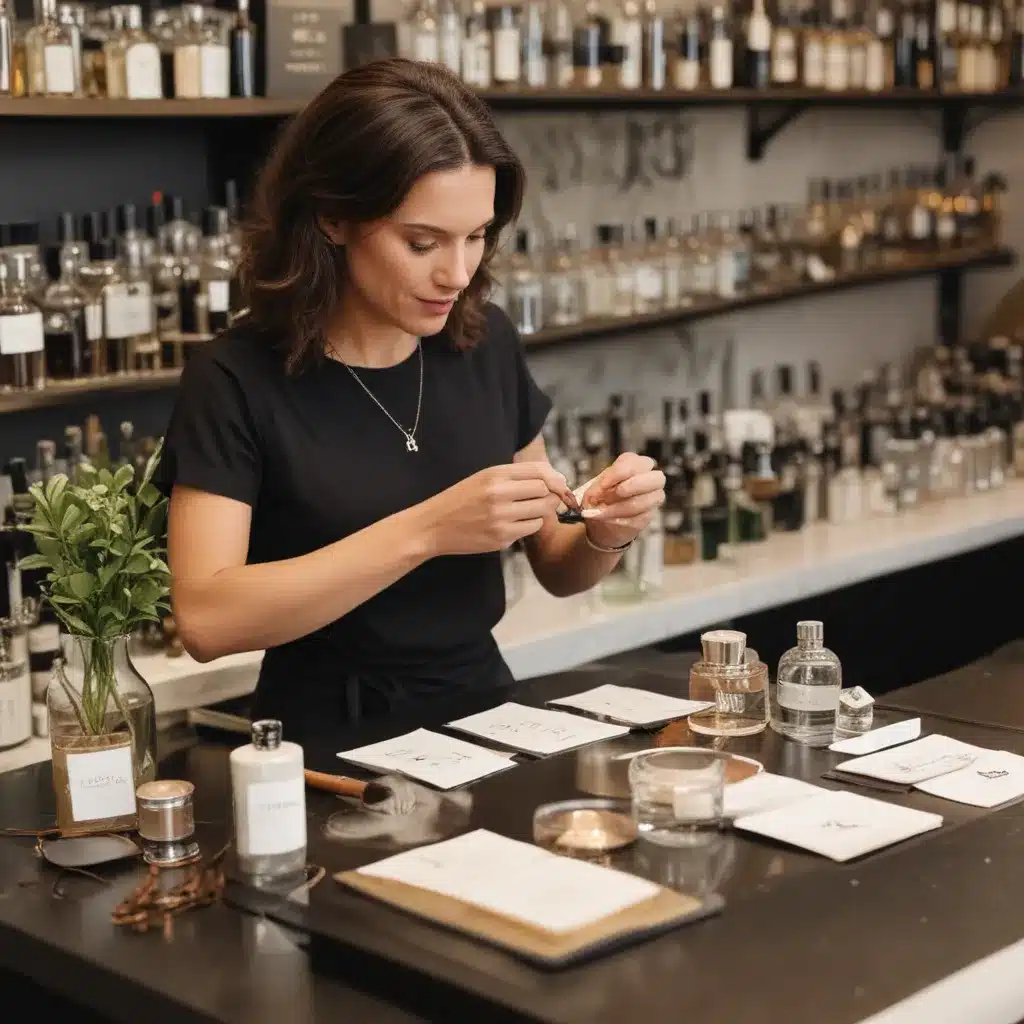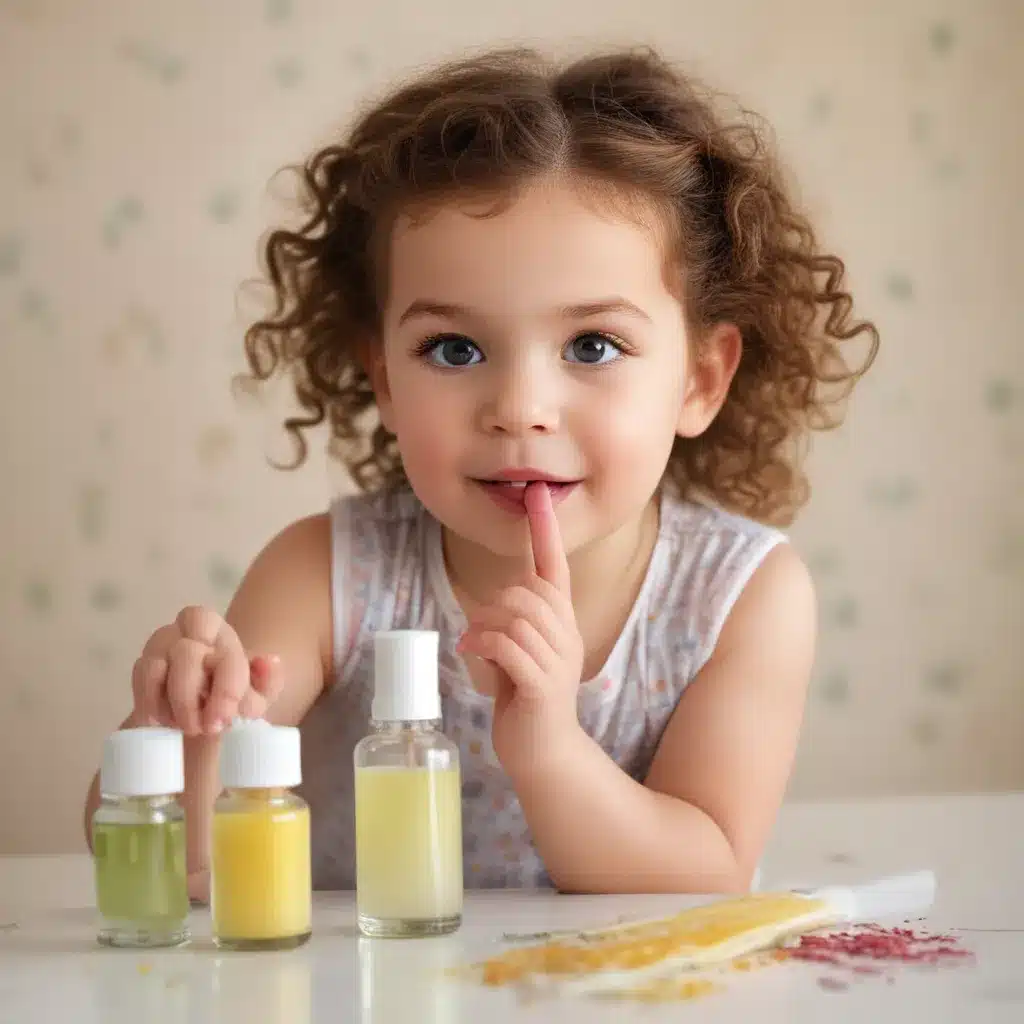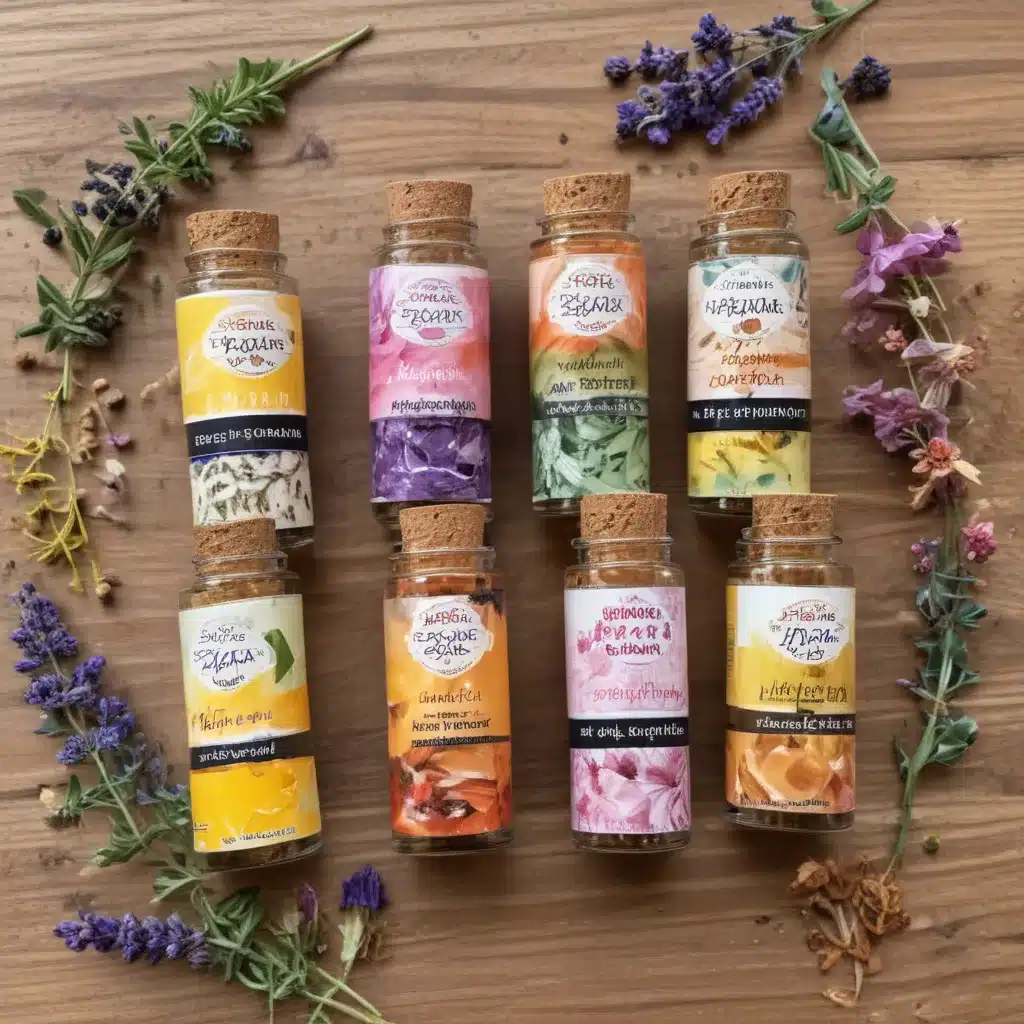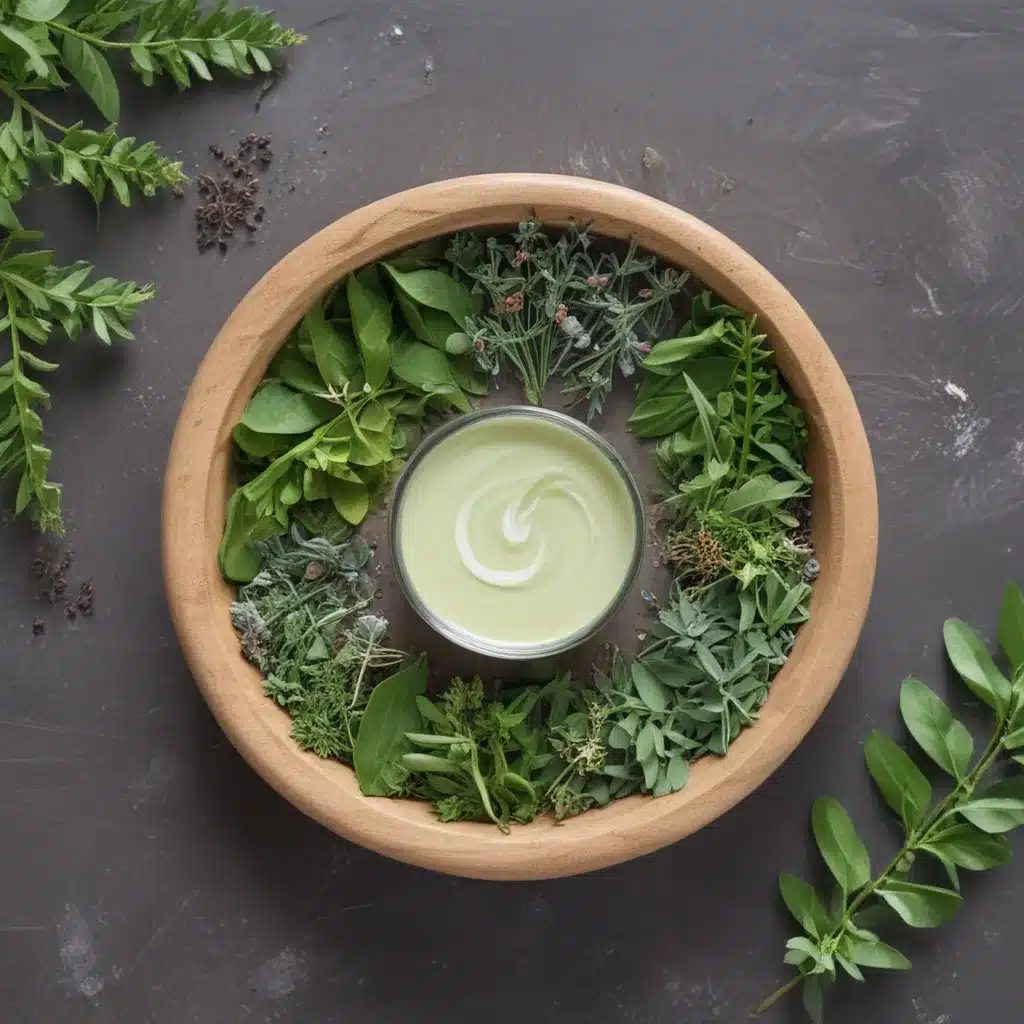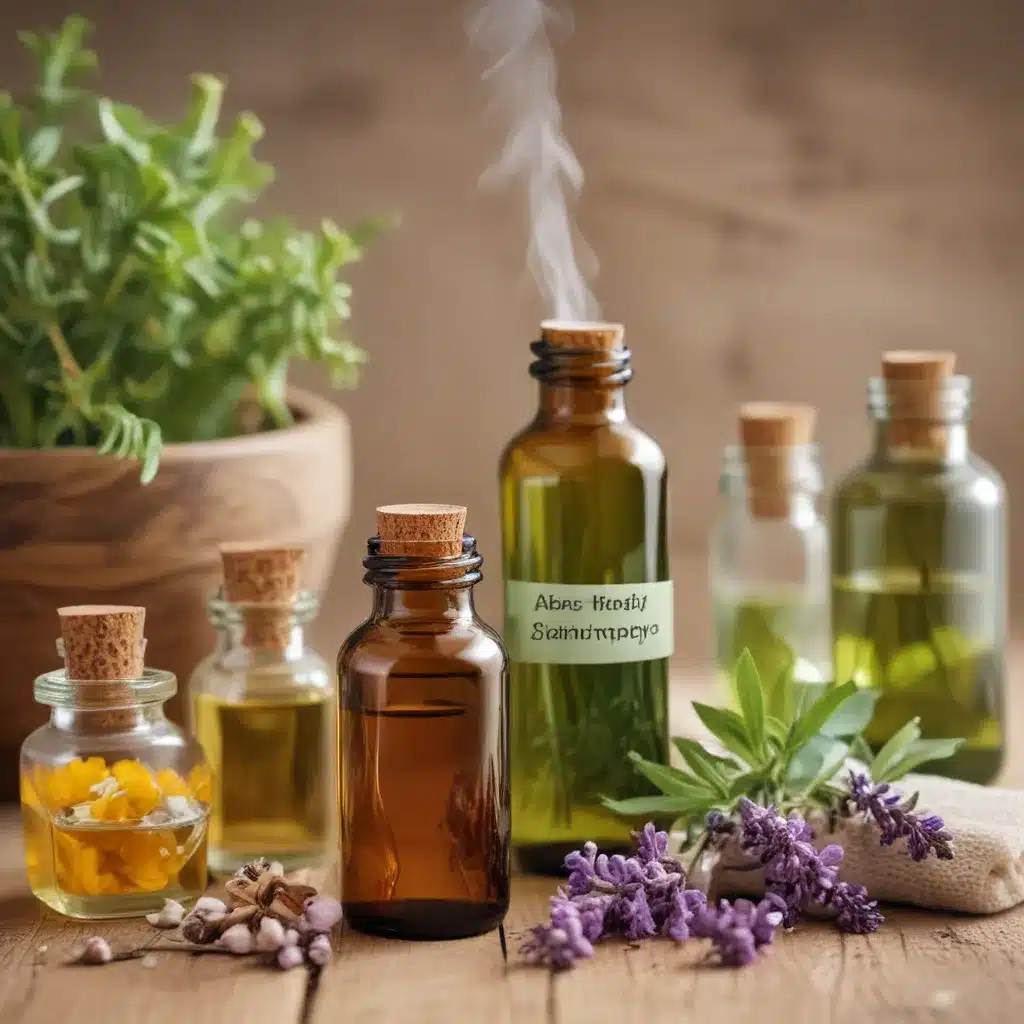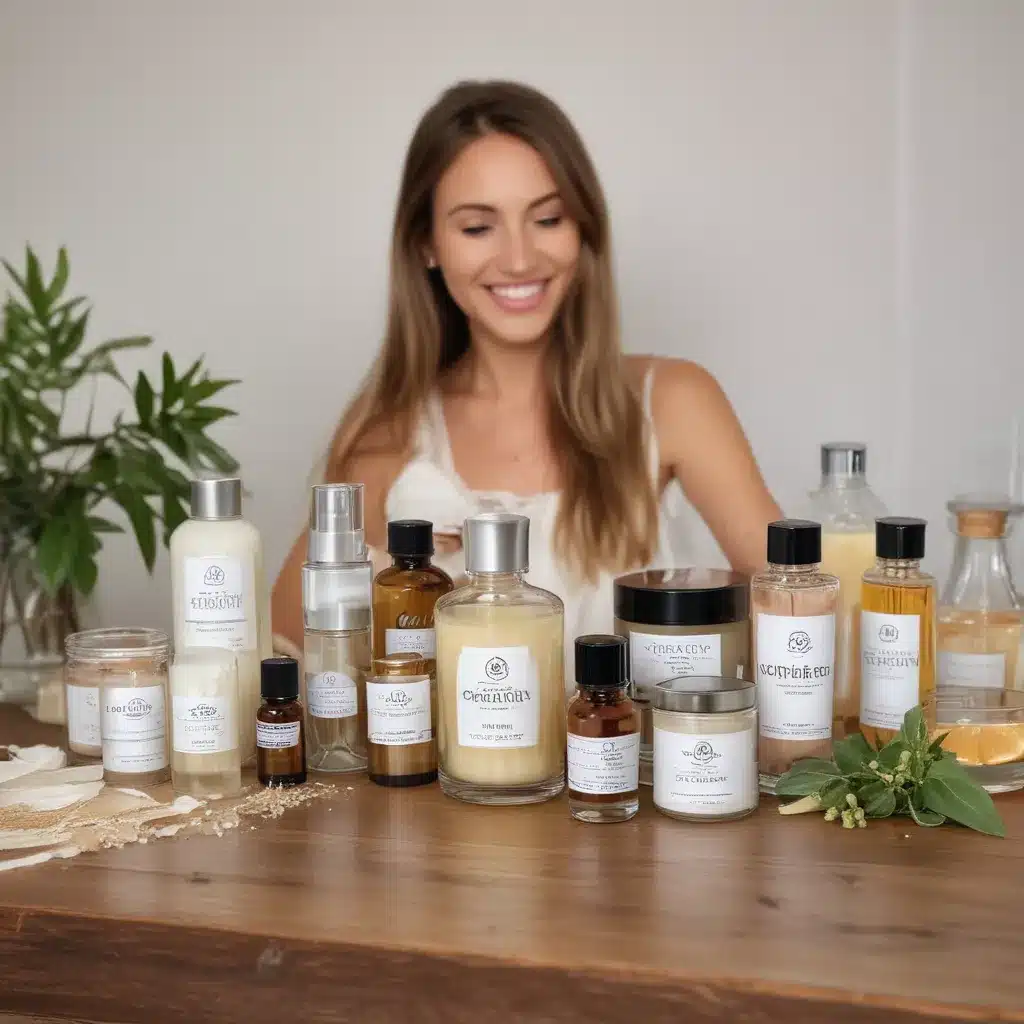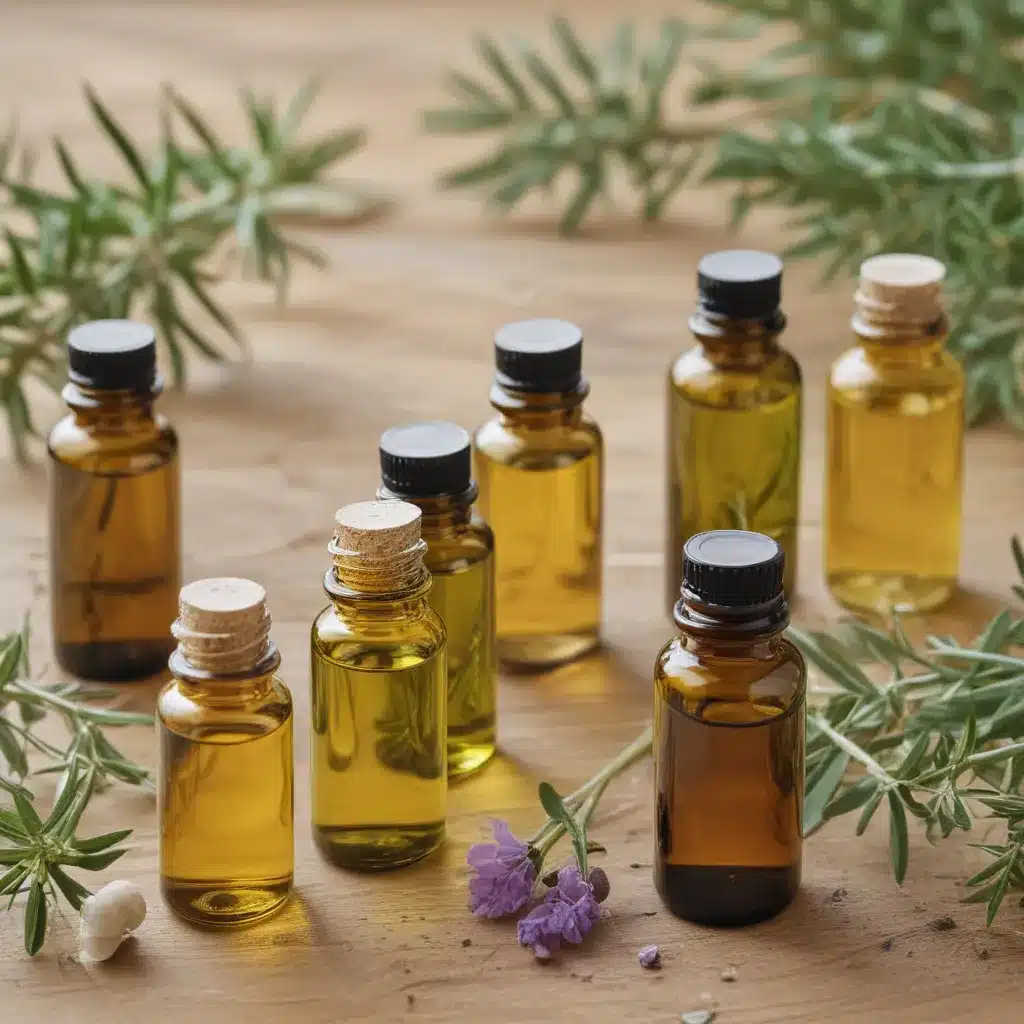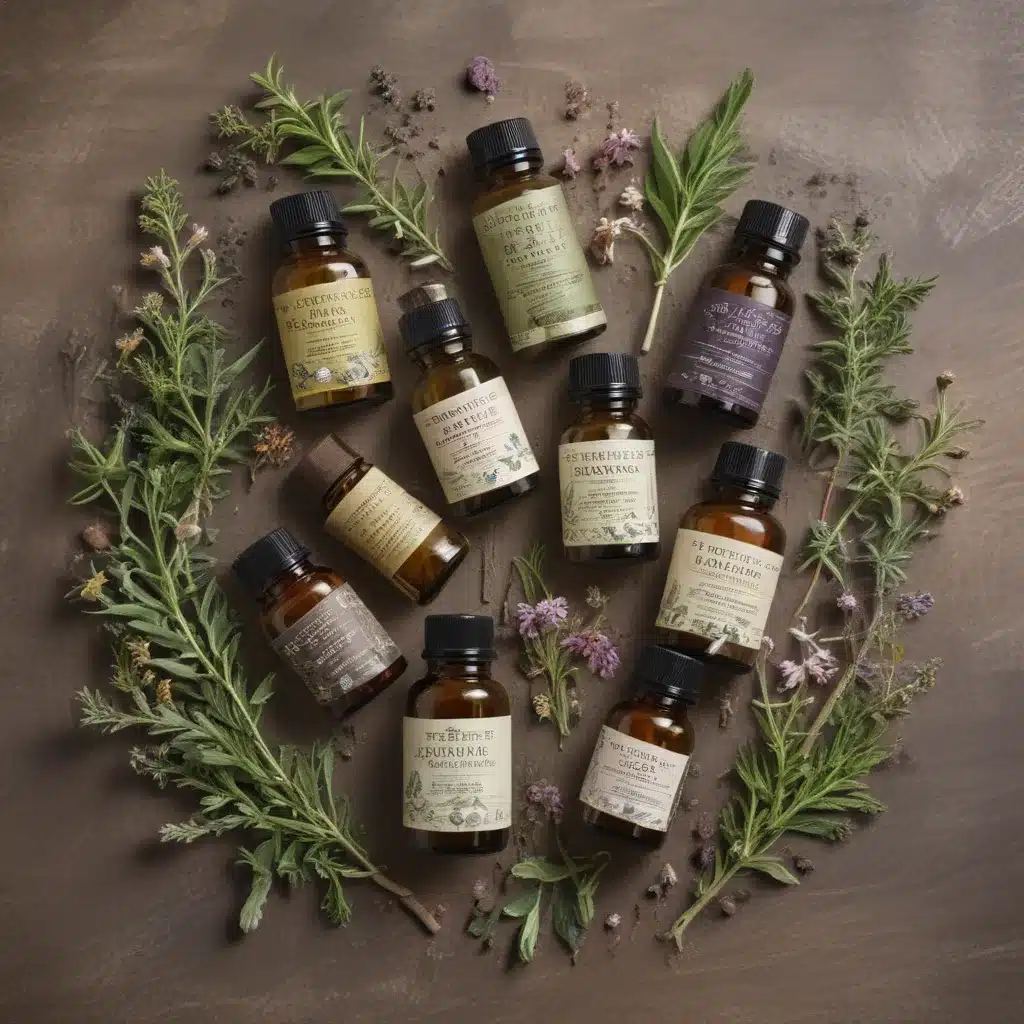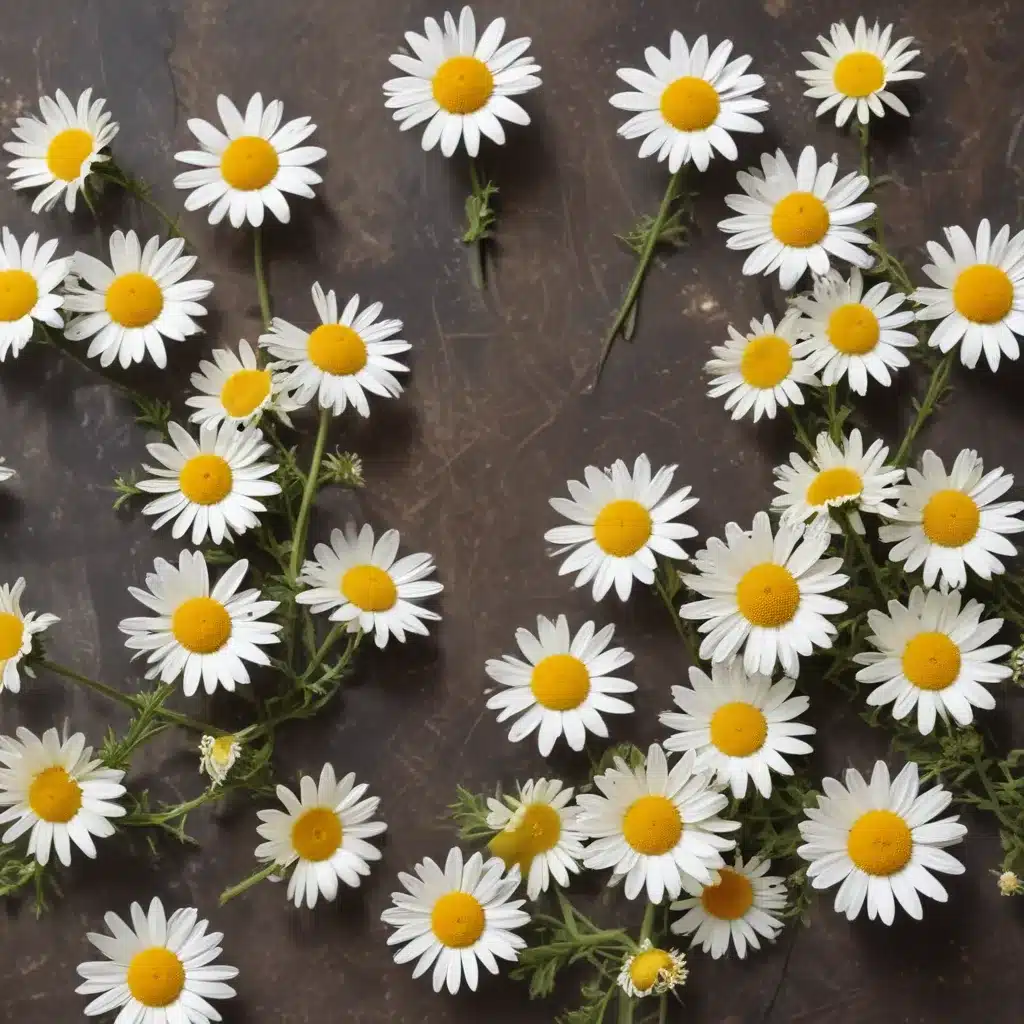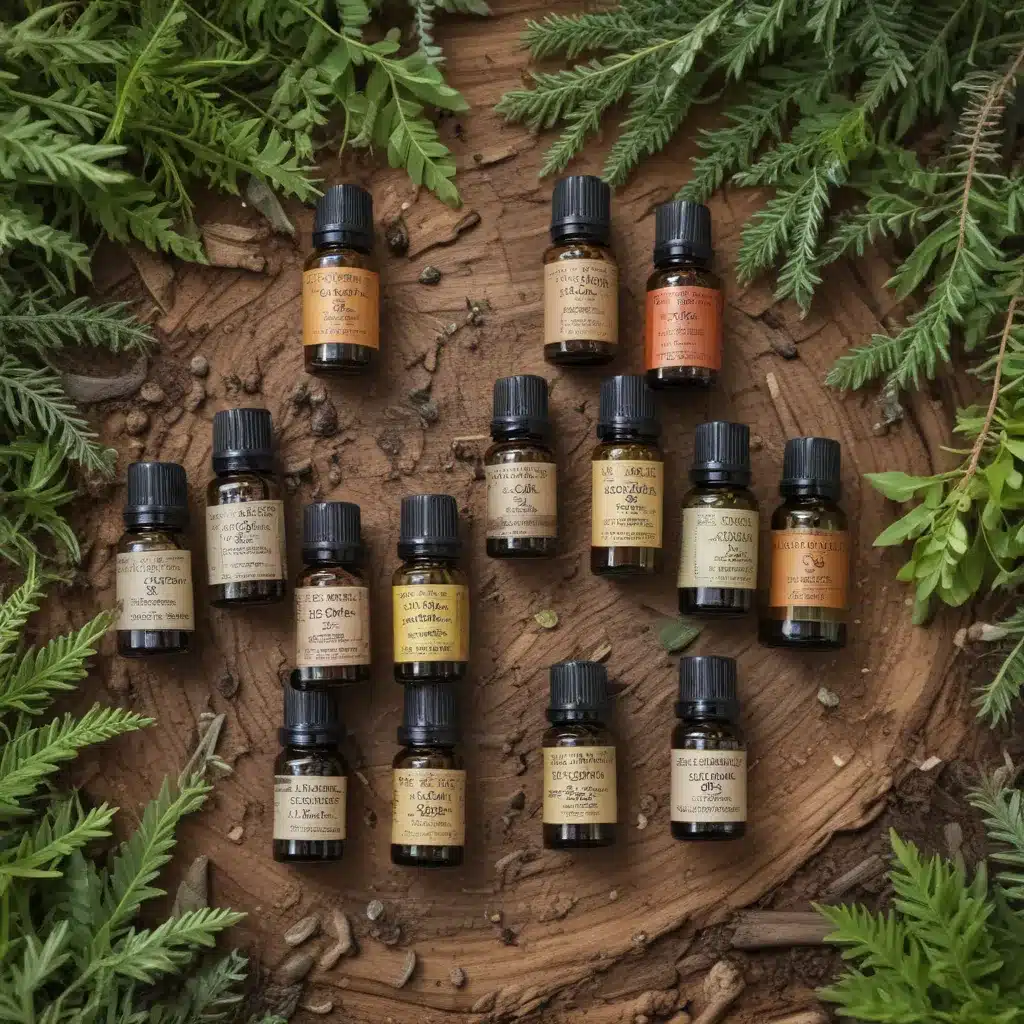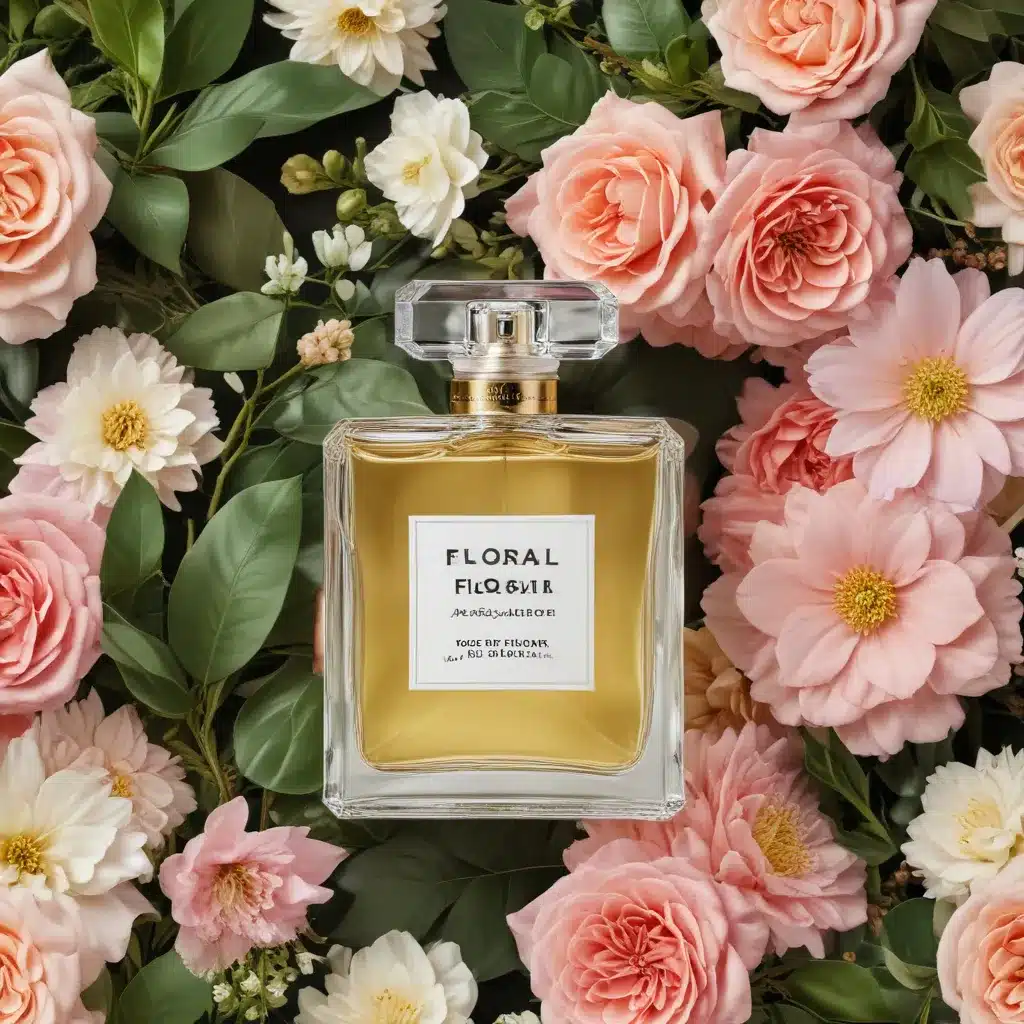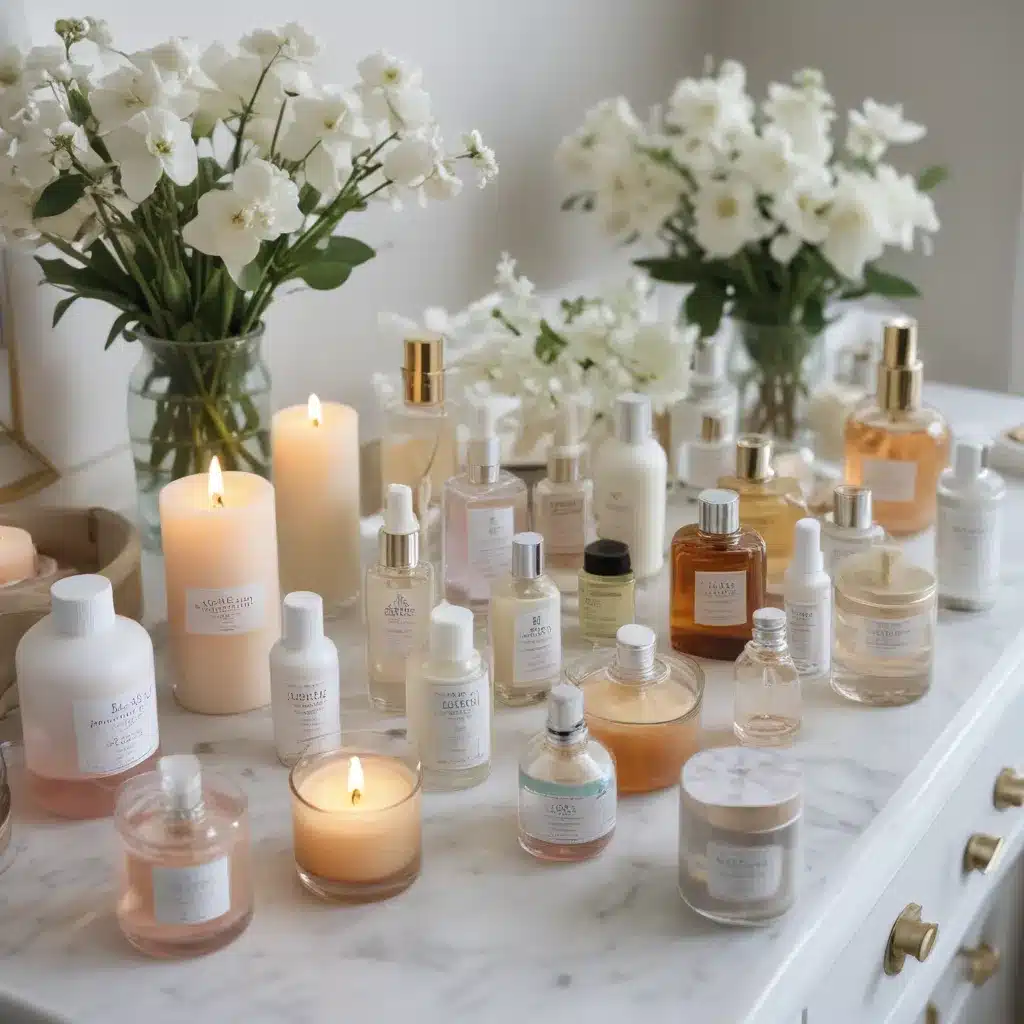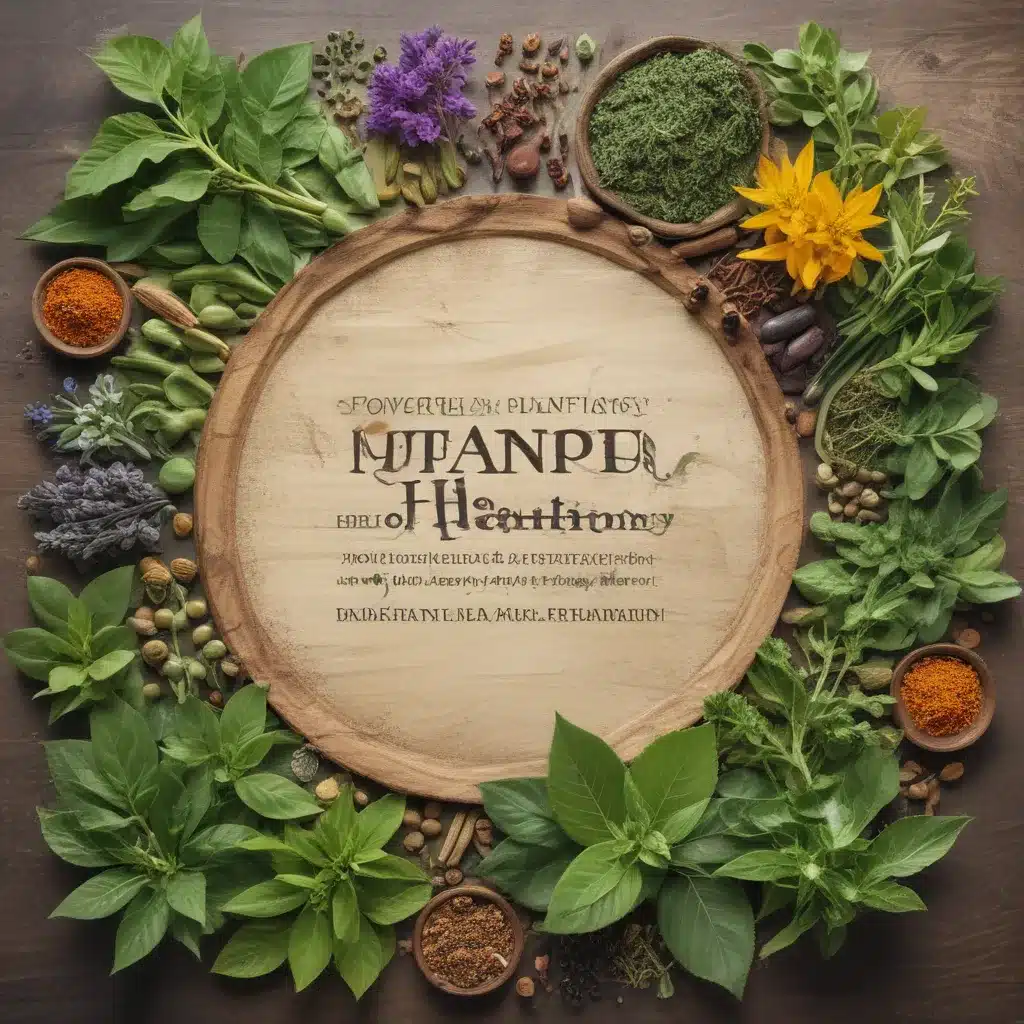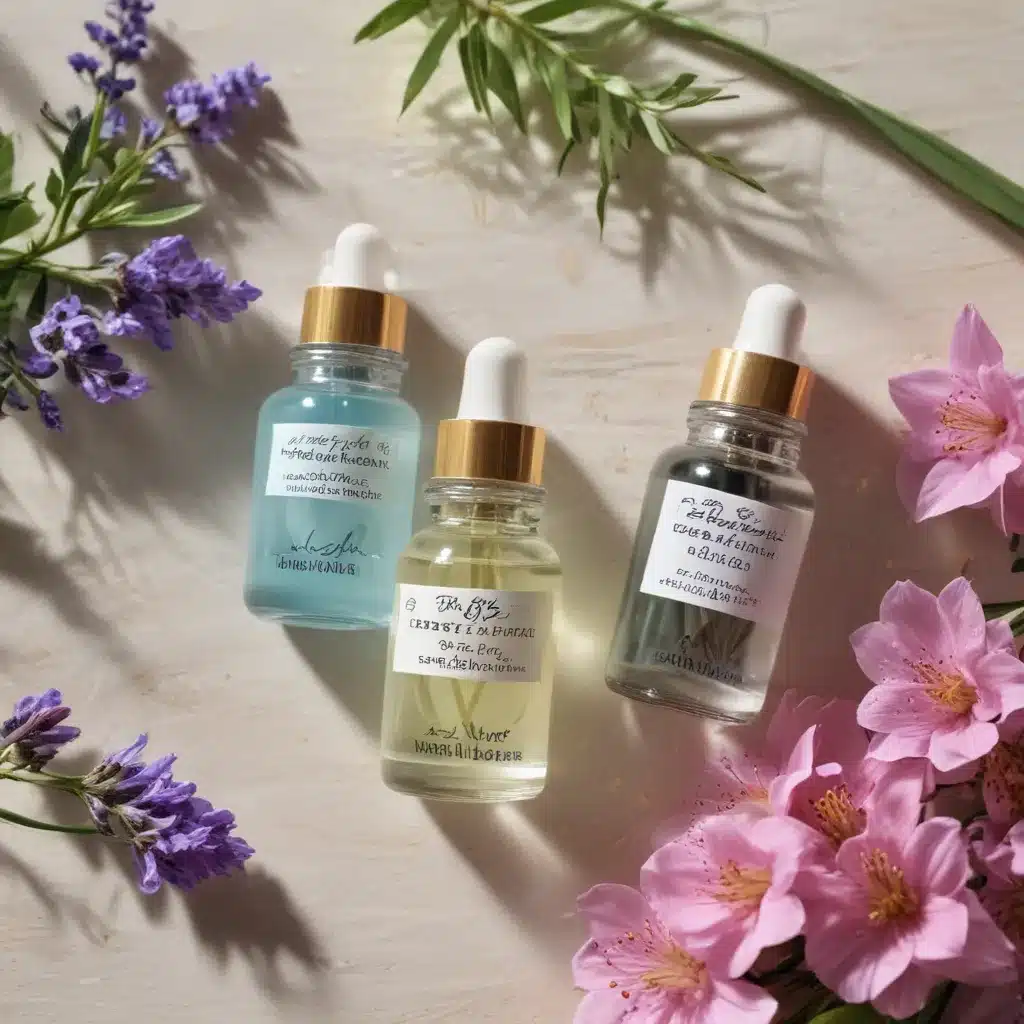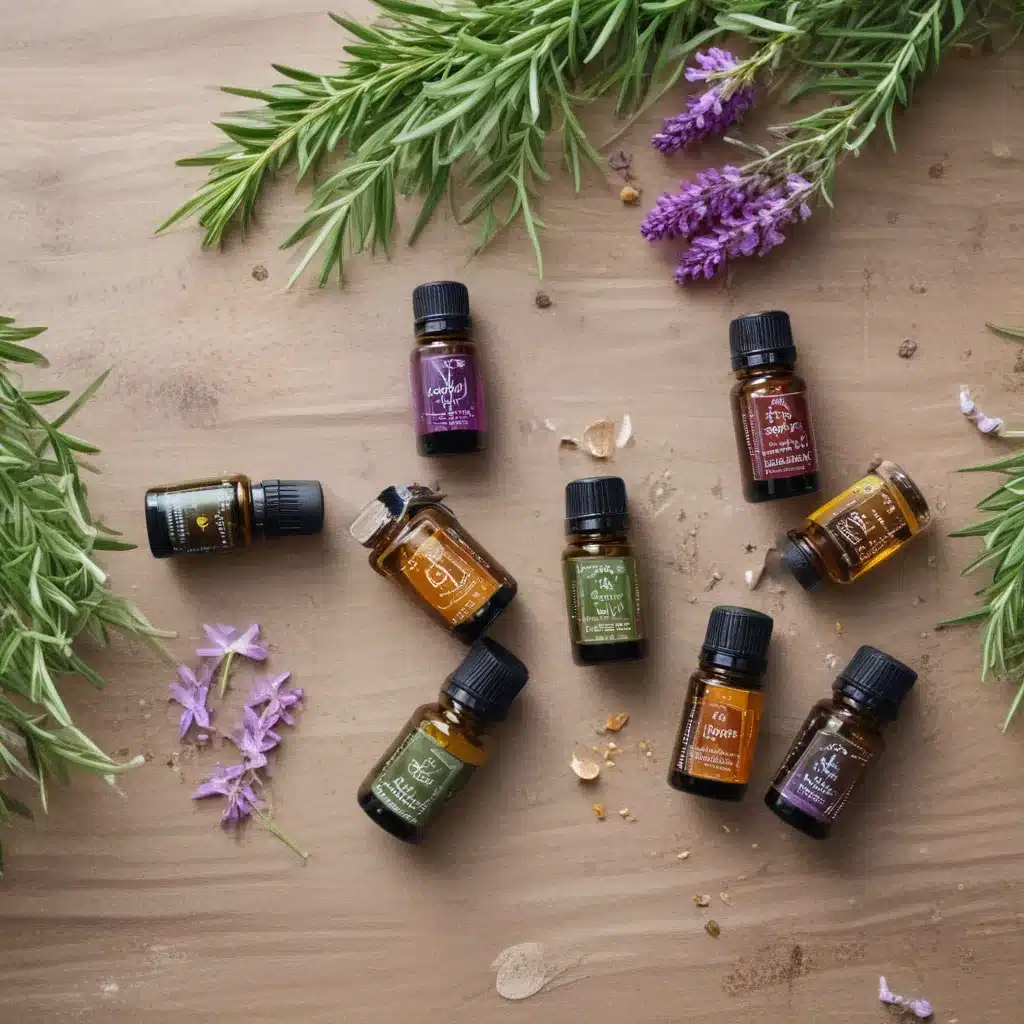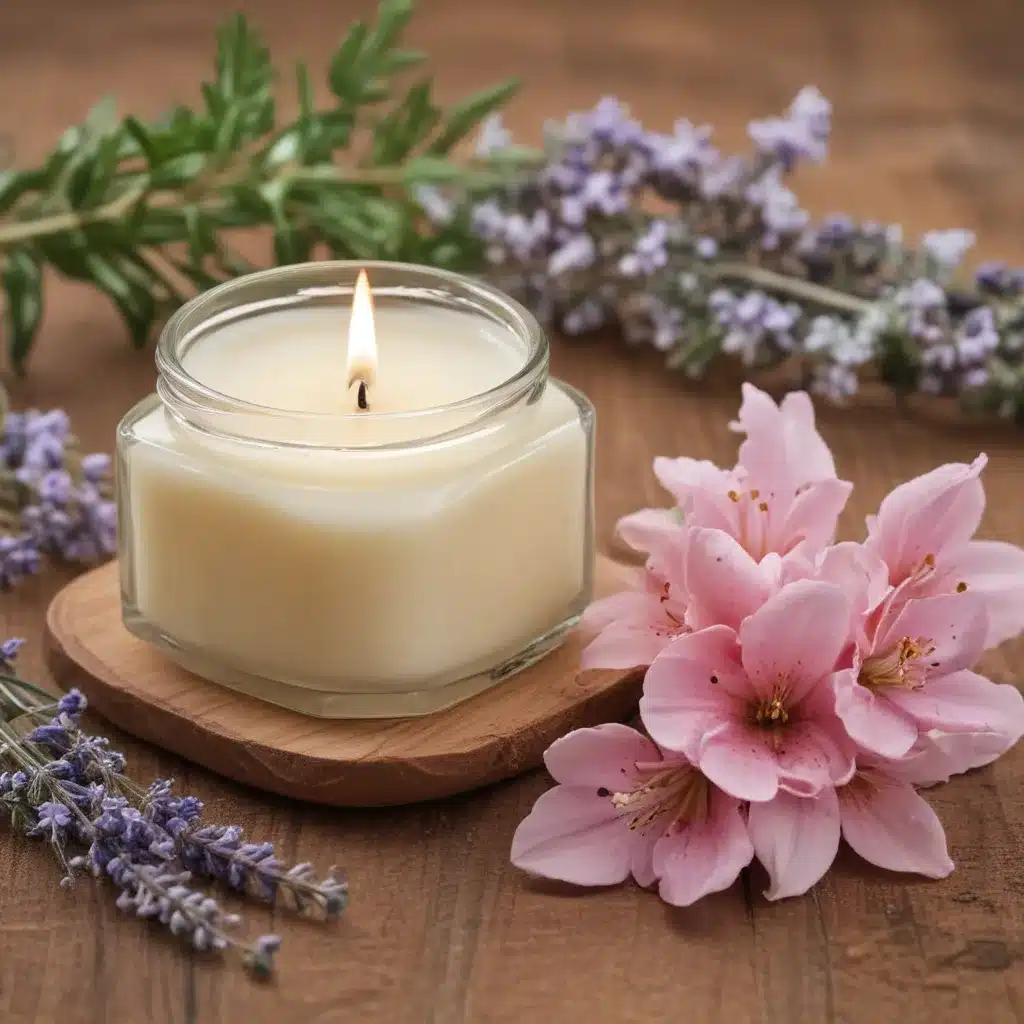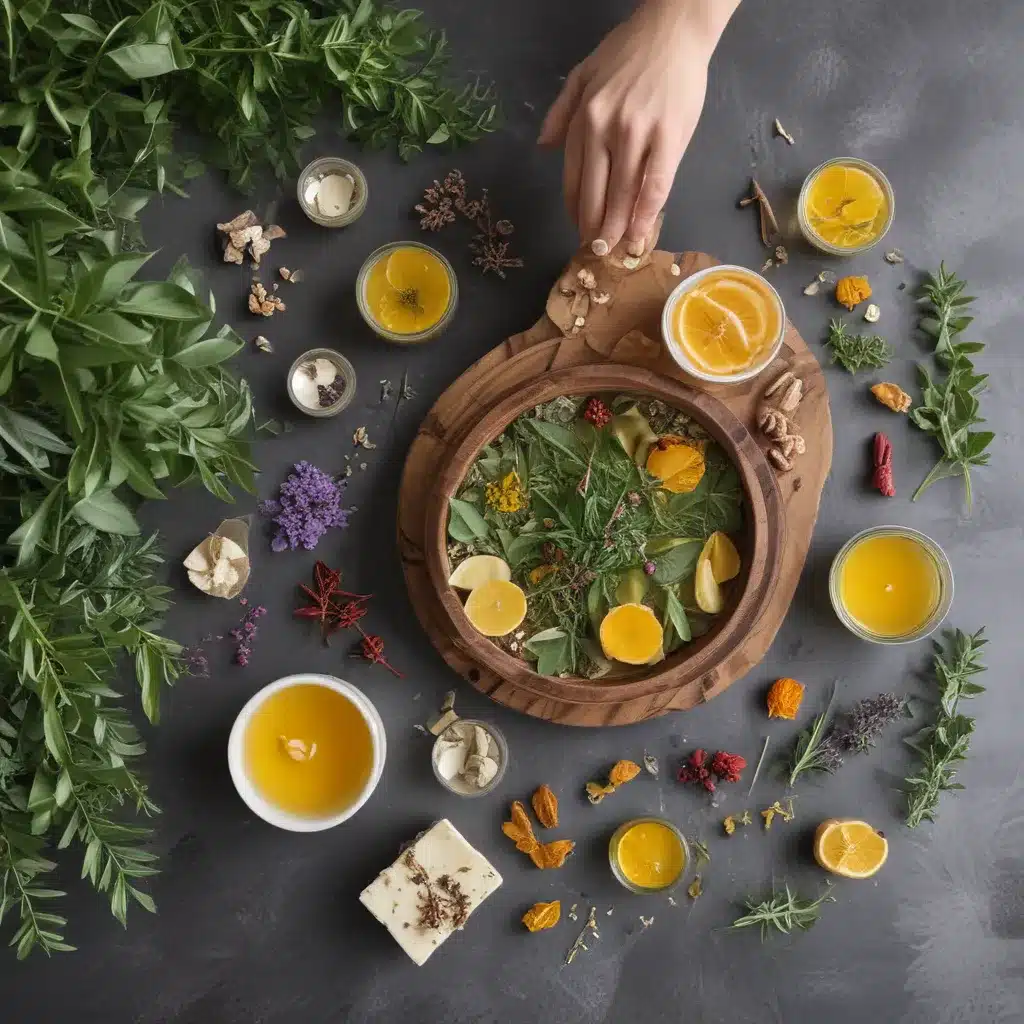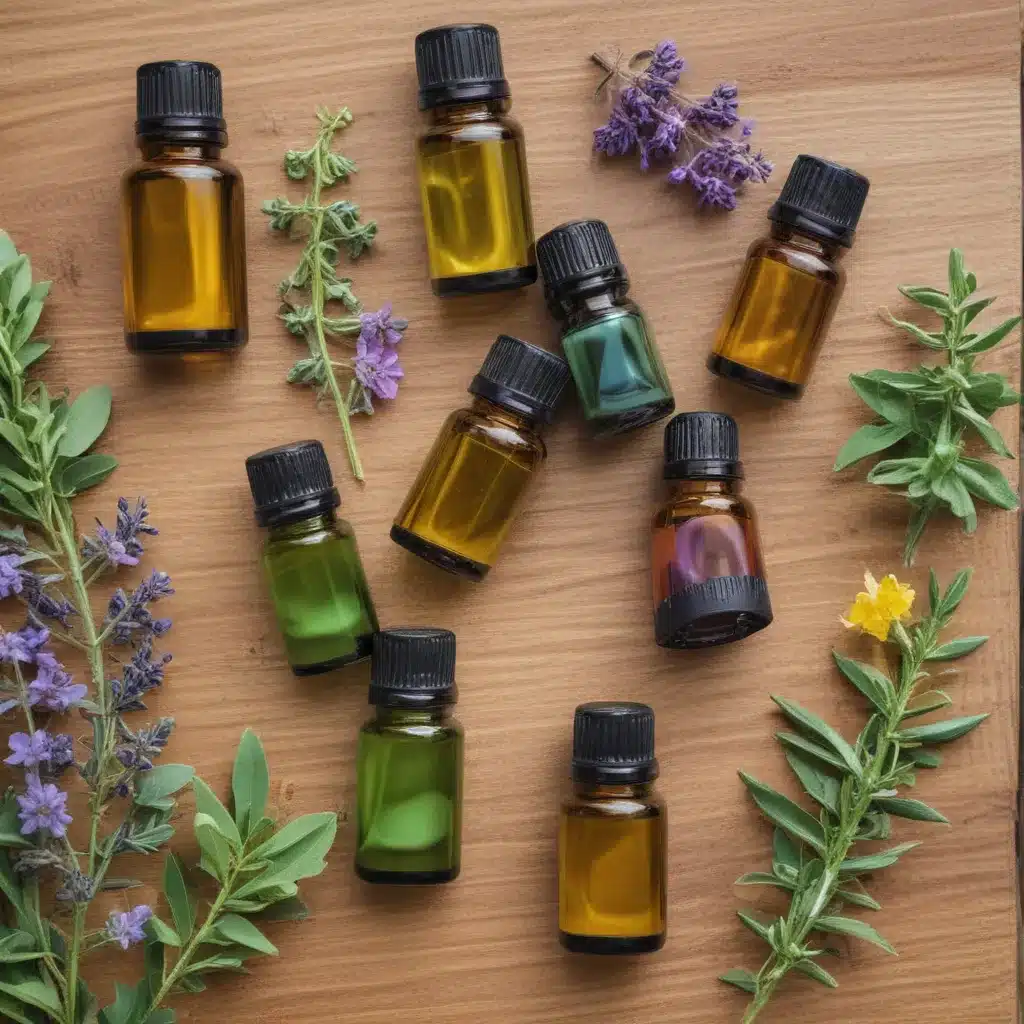
Unlocking the Power of Aromatherapy for Emotional Well-being
Ah, the wondrous world of essential oils! As an aromatherapy enthusiast, I’ve long been fascinated by the transformative power these little bottles of liquid magic can have on our emotional well-being. And let me tell you, when it comes to cultivating emotional resilience, essential oils are like the superheroes of the natural wellness realm.
You know, it’s kind of wild when you think about it – these highly concentrated plant extracts have the ability to literally alter our moods, our stress levels, and even our ability to bounce back from life’s curveballs. It’s like they’re tapping into some ancient, primal part of our brains that’s hardwired to respond to certain scents. I mean, have you ever taken a whiff of lavender and instantly felt a sense of calm wash over you? Or experienced the invigorating, uplifting energy of peppermint? It’s truly remarkable.
And the best part is, essential oils are so versatile and accessible. You don’t need to be a aromatherapy guru to harness their power – anyone can do it! Whether you’re diffusing them in your home, adding them to your DIY beauty products, or even just taking a few deep, mindful breaths of them, essential oils can be a game-changer when it comes to cultivating emotional resilience.
Now, I know what you might be thinking – “But wait, aren’t essential oils just a bunch of hippie-dippy hocus pocus?” Well, my friend, let me tell you, there’s a growing body of scientific research that begs to differ. Numerous studies have shown that certain essential oils can have a profound impact on our emotional states, from reducing anxiety and depression to boosting mood and cognitive function.
And the best part? These essential oils are completely natural and non-invasive. No need for prescription meds or therapy sessions (not that there’s anything wrong with those, of course) – just a little bottle of liquid magic and a whole lot of self-care. It’s like having a personal emotional support system, right at your fingertips.
So, if you’re looking to build up your emotional resilience and weather life’s storms with a little more grace and ease, I highly recommend diving into the world of essential oils. Trust me, it’s a journey worth taking. And who knows – you might just discover your new favorite emotional go-to in the process.
Identifying Emotions and Selecting Appropriate Oils
Now, when it comes to using essential oils for emotional resilience, the first step is to get in touch with your emotions. I know, I know – that can be easier said than done, especially in our fast-paced, constantly-connected world. But trust me, it’s a crucial part of the process.
Think about it this way – how can you expect to choose the right essential oils to support your emotional well-being if you don’t even know what you’re feeling in the first place? It’s like trying to pick out a new pair of shoes without knowing your size. You’re just going to end up with a mess on your hands (or, in this case, a mess in your emotional landscape).
So, take a moment to pause, take a few deep breaths, and do a little emotional self-assessment. Are you feeling anxious? Overwhelmed? Depressed? Stuck in a rut? Whatever it is, try to put a name to it. Acknowledging your emotions is the first step towards finding the right essential oil solutions.
Once you’ve identified the emotions you’re dealing with, it’s time to start exploring the world of essential oils. And let me tell you, there’s a whole arsenal of these little plant-powered powerhouses that can work wonders for emotional resilience.
For example, if you’re feeling anxious or stressed, you might want to try diffusing some calming oils like lavender, chamomile, or bergamot. These oils have been shown to help lower cortisol levels and promote a sense of tranquility.
On the other hand, if you’re struggling with depression or a general lack of motivation, you might find that uplifting oils like lemon, orange, or peppermint can give you a much-needed mood boost.
And let’s not forget about the oils that can help you navigate those emotional rollercoasters with a little more grace and resilience. Frankincense, for instance, is often touted as the “king of oils” when it comes to cultivating inner peace and emotional stability.
The key is to experiment and find the oils that resonate most with you. After all, we’re all unique individuals with our own emotional landscapes, so what works for one person might not work for another. But I can promise you this – with a little trial and error, you’re bound to find your emotional support dream team.
Incorporating Essential Oils into Your Daily Routine
Okay, so you’ve identified your emotions and you’ve got your essential oil arsenal all lined up – now what? Well, my friend, the real magic happens when you start incorporating these oils into your daily routine.
Now, I know what you might be thinking – “But I’m already juggling a million things! How am I supposed to fit in one more self-care activity?” – and I hear you. Believe me, I know how overwhelming it can be to try and add yet another thing to our already-packed schedules.
But here’s the thing – using essential oils for emotional resilience doesn’t have to be a time-consuming, complicated process. In fact, it can be as simple as taking a few deep, mindful breaths throughout your day.
Let’s say you’re feeling particularly anxious before a big meeting or presentation. Instead of reaching for the coffee (or the wine, let’s be real), try taking a quick essential oil break. Just a few drops of lavender or bergamot on your wrists or temples, and a few deep inhalations, and you might just find that your jitters start to melt away.
Or maybe you’re in a bit of an afternoon slump, and you need a little pick-me-up to power through the rest of the day. Reach for your peppermint or citrus oils, and give your senses a refreshing boost.
And let’s not forget about the power of diffusing essential oils in your living or workspace. Just a few drops in a diffuser can transform the entire atmosphere, creating a soothing, uplifting environment that can work wonders for your emotional state.
The best part? You can get as creative as you want with how you incorporate these oils into your life. Maybe you want to try making your own DIY body products, like a stress-relieving bath soak or a revitalizing facial mist. Or perhaps you’re more of a minimalist, and a simple dab of oil on your pulse points is all you need.
The key is to find what works best for you and your lifestyle. Because when it comes to using essential oils for emotional resilience, there’s no one-size-fits-all approach. It’s all about experimenting, listening to your body and your intuition, and finding the practices that make you feel your absolute best.
Emotional Resilience in Action: Real-Life Case Studies
Now, I know we’ve been talking a lot about the theoretical benefits of using essential oils for emotional resilience, but I think it’s important to also look at some real-life case studies. After all, the proof is in the pudding, as they say.
Take my friend, Sarah, for example. She’s been dealing with anxiety for years, and it’s really taken a toll on her mental health and overall well-being. But ever since she started incorporating essential oils into her daily routine, she’s noticed a significant improvement in her mood and ability to handle stressful situations.
“I used to be a complete mess before big work presentations or social events,” Sarah told me. “But now, I just take a few deep breaths of my lavender and bergamot blend, and I feel so much calmer and more grounded. It’s like a weight has been lifted off my shoulders.”
And then there’s my neighbor, Mark, who’s been struggling with depression for a while. He told me that he was skeptical about essential oils at first, but after trying a few different blends, he’s been amazed by the results.
“I was in a really dark place, and I just couldn’t seem to find my way out,” Mark said. “But then I started diffusing this citrus and peppermint blend, and it’s like a switch flipped in my brain. I suddenly had this surge of energy and optimism that I hadn’t felt in ages.”
These stories are just the tip of the iceberg, really. I’ve heard so many similar accounts from people who have found that essential oils have been a literal game-changer when it comes to building emotional resilience and weathering life’s ups and downs.
And it’s not just anecdotal evidence, either. There’s a growing body of scientific research that supports the use of essential oils for improving mood, reducing stress and anxiety, and enhancing cognitive function.
For example, a 2015 study published in the European Journal of Integrative Medicine found that the inhalation of lavender essential oil was effective in reducing anxiety and improving sleep quality in patients with anxiety disorders. And a 2018 study in the Journal of Alternative and Complementary Medicine showed that the use of lemon essential oil was associated with a significant reduction in depressive symptoms.
So, if you’re looking to cultivate a little more emotional resilience in your life, I highly encourage you to give essential oils a try. Who knows – you might just discover your new best friend in the world of natural wellness.
Crafting Your Personalized Emotional Resilience Toolkit
Now, I know what you might be thinking – “Okay, this all sounds great, but how do I actually put it all into practice?” Well, my friend, let me tell you, crafting your personalized emotional resilience toolkit is half the fun.
It’s all about experimenting, finding what works for you, and then creating a little self-care routine that you can turn to whenever life starts to feel a little too overwhelming.
First things first, take a look at the essential oils we’ve talked about so far – lavender, bergamot, chamomile, lemon, orange, peppermint, frankincense, and the like. Start by picking a few that you’re drawn to, either based on their scent profiles or their reported emotional benefits.
Then, think about how you want to incorporate them into your daily life. Do you want to try diffusing them in your home or office? Maybe you’d prefer to mix them into a DIY body product, like a facial serum or a calming bath soak. Or perhaps you’re more of a “dab it on your wrists and take a deep breath” kind of person.
The great thing about essential oils is that they’re incredibly versatile, so you can really get creative with how you use them. Maybe you want to try blending a few oils together to create a custom “emotional resilience” formula. Or perhaps you want to experiment with different application methods, like using a roller bottle or a personal essential oil inhaler.
And don’t forget about the power of intention-setting. When you’re using your essential oils, take a moment to really focus on the emotional state you’re trying to cultivate. Visualize yourself feeling calm, centered, and resilient. Let the scents and your own mindfulness work their magic.
Remember, building emotional resilience is a journey, not a destination. It’s all about finding what works for you and then sticking with it. And the great thing about essential oils is that they can be a constant, supportive presence throughout that journey.
So, go forth and get experimenting, my friend! Craft your personalized emotional resilience toolkit, and let those little bottles of plant-powered magic work their wonders. Who knows – you might just discover a whole new level of inner strength and resilience that you never knew you had.
The Science Behind Essential Oils and Emotional Resilience
Okay, so we’ve talked a lot about the practical applications of using essential oils for emotional resilience, but I know some of you out there might be craving a little more scientific evidence. After all, in this day and age, we want to make sure we’re putting our faith in things that are backed by solid research, right?
Well, my friends, I’m happy to report that there’s a growing body of scientific literature that supports the use of essential oils for improving mood, reducing stress and anxiety, and even enhancing cognitive function.
You see, it all comes down to the way our olfactory system (that’s fancy talk for our sense of smell) is wired up in our brains. When we inhale the aromatic compounds found in essential oils, those molecules travel straight from our nasal cavity to the limbic system – the part of our brain that’s responsible for processing emotions, memories, and even our physiological responses to stimuli.
And it’s not just a theoretical connection – there’s actual scientific evidence that demonstrates the impact of essential oils on our emotional well-being. For example, a 2012 study published in the Evidence-Based Complementary and Alternative Medicine journal found that the inhalation of lavender essential oil was able to significantly reduce anxiety and improve mood in participants.
But it’s not just lavender – other essential oils like bergamot, chamomile, and frankincense have also been shown to have a positive impact on emotional resilience. A 2015 study in the European Journal of Integrative Medicine found that the use of bergamot oil was effective in reducing cortisol levels (that’s the stress hormone) and improving feelings of calmness and relaxation.
And the benefits don’t just stop at mood and anxiety – research has also suggested that essential oils can enhance cognitive function and even support the nervous system. A 2018 study in the Journal of Alternative and Complementary Medicine demonstrated that the inhalation of lemon essential oil was associated with improved memory, attention, and overall cognitive performance.
So, what’s the takeaway here? Well, it’s pretty clear that these little bottles of plant-powered magic are not just hocus pocus – there’s legitimate science behind the way they can support our emotional resilience and overall well-being. And the best part? They’re completely natural, non-invasive, and accessible to just about everyone.
Of course, as with any natural remedy, it’s always a good idea to do your own research and consult with a healthcare professional, especially if you have any pre-existing conditions or are taking medications. But overall, I’d say the evidence is pretty compelling – essential oils are a powerful tool in the quest for emotional resilience and a more balanced, harmonious life.
Conclusion: Embracing the Power of Essential Oils for Emotional Resilience
Well, there you have it, folks – a deep dive into the incredible world of essential oils and their role in cultivating emotional resilience. From identifying your emotions and selecting the right oils to incorporating them into your daily routine and even exploring the science behind it all, I hope I’ve been able to paint a pretty comprehensive picture of this transformative natural wellness practice.
And you know, the more I learn about essential oils and their ability to support our emotional well-being, the more I’m convinced that they’re not just a passing fad or some kind of hippie-dippy hocus pocus. No, these little bottles of plant-powered magic are the real deal – a powerful and accessible tool that anyone can use to build up their emotional resilience and weather the ups and downs of life with a little more grace and ease.
So, if you’re feeling overwhelmed, anxious, or just generally in need of a little emotional pick-me-up, I highly encourage you to give essential oils a try. Experiment with different scents, different application methods, and different intention-setting practices until you find what works best for you. Because trust me, once you unlock the power of these natural wonders, you’ll wonder how you ever lived without them.
And who knows – maybe you’ll even become as much of an essential oil evangelist as I am. I mean, just imagine it – the two of us, spreading the good word about the transformative power of these little bottles of magic, one deep, mindful breath at a time. Wouldn’t that be something?
Anyway, I digress. The point is, essential oils are a game-changer when it comes to emotional resilience, and I’m thrilled to have had the opportunity to share my passion and knowledge with you today. So, go forth, my friend, and let the power of nature work its wonders on your emotional well-being. Your resilient, balanced self will thank you for it, I promise.


